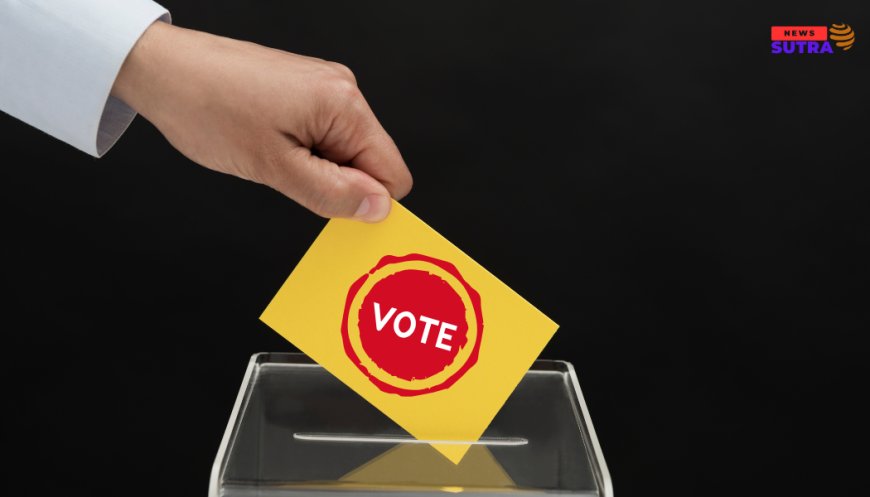India Calls for Free and Fair Elections in Bangladesh Amid Regional Concerns
India has emphasized the need for free and fair elections in Bangladesh, highlighting democratic values and regional stability as key priorities in its diplomatic outreach.

In a significant diplomatic statement reflecting its evolving regional priorities, India has called on Bangladesh to ensure free, fair, and transparent elections. The message, conveyed through diplomatic channels and public statements, underscores New Delhi's growing emphasis on democratic stability in South Asia — particularly as Bangladesh prepares for its upcoming general elections.
This development signals a shift in tone, as India, traditionally a close partner of Bangladesh, chooses to subtly raise concerns about electoral legitimacy, inclusivity, and regional peace.
India-Bangladesh Relations: A Strategic Overview
India and Bangladesh share a complex and deeply interwoven relationship marked by shared history, trade ties, security cooperation, and cultural proximity. Since Prime Minister Sheikh Hasina took office in 2009, bilateral relations have been notably warm. From water-sharing agreements to joint counter-terrorism initiatives and energy cooperation, both nations have seen significant growth in mutual trust.
However, the approaching elections in Bangladesh, slated for early next year, have raised eyebrows internationally. Accusations of political suppression, arrests of opposition members, and restrictions on media have prompted global concern — and India is beginning to signal its interest in a peaceful democratic process.
As noted by The Diplomat, “New Delhi cannot afford to ignore the consequences of political instability in its eastern neighbor, especially given the potential spillover into its own northeastern states.”
India’s Message: Stability through Democracy
In a carefully worded statement, an official from India’s Ministry of External Affairs (MEA) remarked:
“India remains a committed partner to Bangladesh and believes that democratic processes, including free and fair elections, are fundamental to regional peace and development.”
This statement aligns with India's broader foreign policy narrative of promoting democratic norms without directly intervening in domestic politics. However, analysts believe the timing and emphasis are deliberate, given the intensifying global scrutiny of Bangladesh’s political climate.
A recent Reuters report revealed that Indian diplomats have held backchannel discussions with key Bangladeshi stakeholders to encourage electoral reforms and fair campaigning practices.
International and Regional Implications
India’s stance comes at a time when Western nations, including the United States and members of the European Union, have voiced concerns about human rights and democratic backsliding in Bangladesh. The U.S. State Department has already imposed visa restrictions on individuals undermining the democratic process in the country.
By aligning with these broader international concerns — albeit in its own diplomatic language — India is signaling that regional peace is intricately tied to domestic political legitimacy.
A stable Bangladesh is essential for India, especially for safeguarding its interests in:
-
Counter-insurgency operations in the Northeast
-
Cross-border trade and transit corridors
-
Maritime security in the Bay of Bengal
-
Hydropower and water-sharing agreements
For an in-depth analysis of India’s strategic interests in Bangladesh, read this paper by ORF.
Domestic Political Dynamics in Bangladesh
Bangladesh’s ruling Awami League, led by Sheikh Hasina, has maintained firm control over the country’s political machinery. Meanwhile, opposition parties, most notably the Bangladesh Nationalist Party (BNP), have raised consistent concerns about being politically sidelined, imprisoned, or harassed.
According to Human Rights Watch and Amnesty International, there has been a growing pattern of censorship, media crackdowns, and police brutality during opposition protests.
India’s nuanced support for transparent elections is thus viewed as a gentle push for accountability in an environment where public trust in the electoral process is steadily eroding.
A Delicate Balancing Act for New Delhi
India's foreign policy towards Bangladesh is grounded in non-interference, mutual respect, and strategic engagement. Yet, the shifting geopolitical dynamics and rising Chinese influence in Dhaka compel New Delhi to recalibrate its approach.
As pointed out in a Brookings Institution report, India’s credibility as a democratic partner in South Asia is increasingly tied to how it upholds and promotes democratic values abroad.
While India has no interest in alienating the Hasina government — a proven ally — it also cannot be seen as complicit in the erosion of democratic norms. The call for a credible electoral process is an attempt to walk that fine line.
Voices from the Region
Several South Asian political observers and civil society members have welcomed India’s evolving approach. Speaking to The Hindu, Professor Imtiaz Ahmed from Dhaka University remarked:
“If India encourages democratic practices in its neighbors, it will only enhance its moral leadership in the region. This is a timely message.”
At the same time, voices from Bangladesh’s ruling party have pushed back, insisting that their electoral process is sovereign and that international pressure is unwarranted.
What Lies Ahead
With elections looming and political tensions rising, India’s position could influence how events unfold on the ground. The coming months will likely see increased diplomatic engagement, media scrutiny, and civil society activism.
Whether India’s message results in any tangible electoral reform remains to be seen. However, it does underline a critical shift in New Delhi’s regional diplomacy — one where stability and democratic legitimacy are becoming inseparable goals.
Conclusion
India’s call for free and fair elections in Bangladesh represents more than just diplomatic posturing. It is a strategic necessity framed as a democratic appeal. For New Delhi, the stakes are high: a stable, democratic, and cooperative Bangladesh is vital to India’s regional security, economic integration, and geopolitical strategy.
As Dhaka heads toward a contentious electoral season, India’s calibrated but firm stance could prove to be a pivotal voice — not just for Bangladesh, but for the future of democratic governance in South Asia.


















































